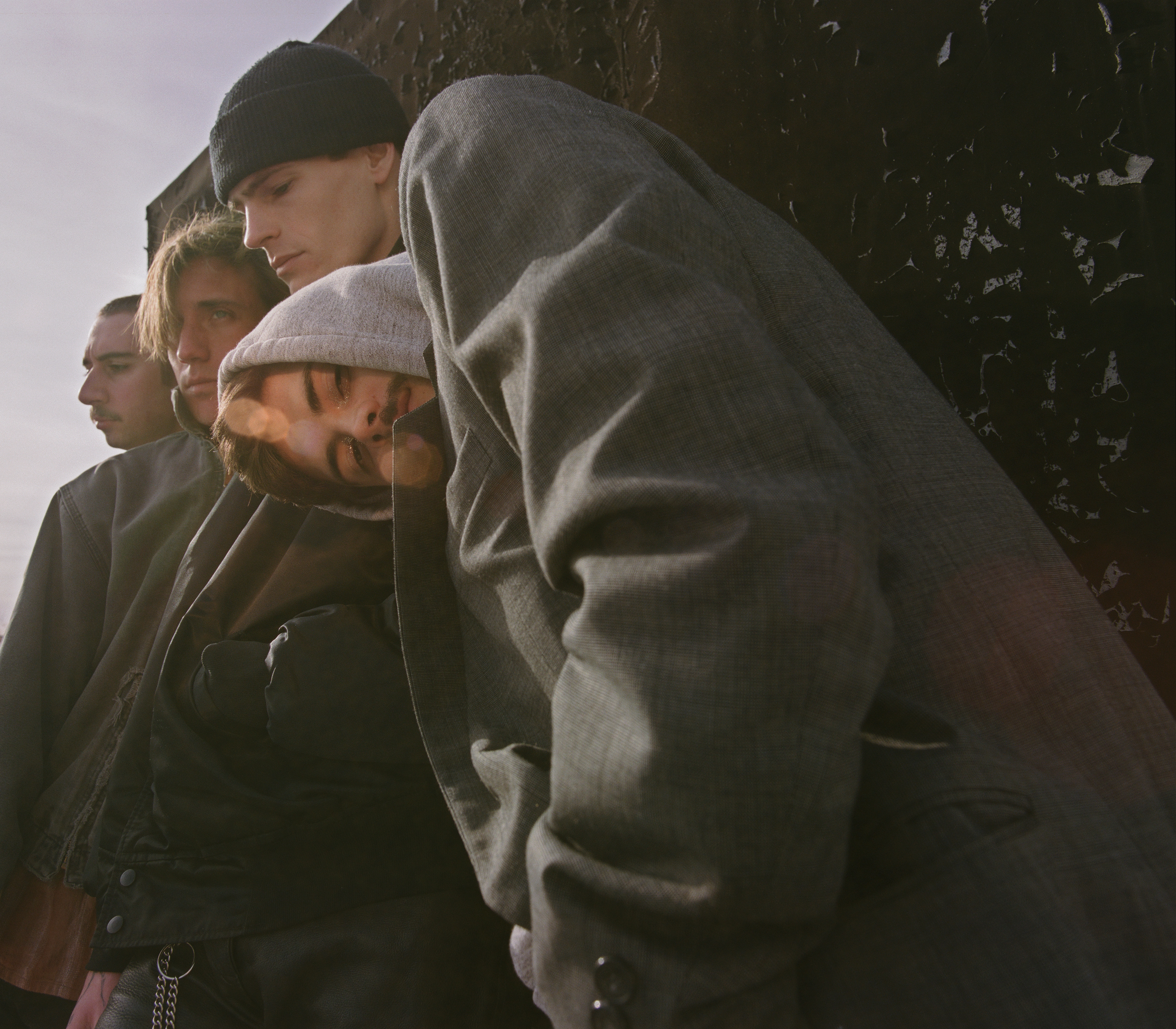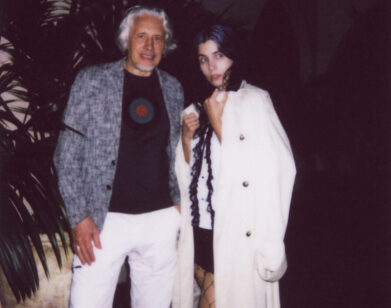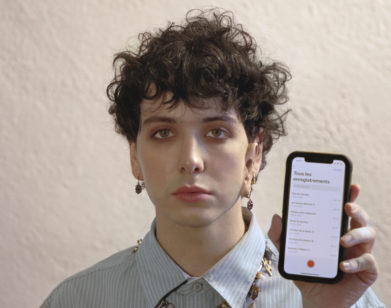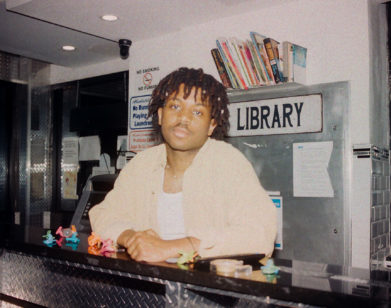nice to meet you
Model/Actriz on Venn Diagrams andthe “Sexual Vigor and Terror” of Cats

Photo by Mikaela Lungulov-Klotz.
This is Nice to Meet You, for all your need-to-know information on the need-to-get-to-know new voices in pop culture. Think of it as a blind date, if the date were cooler than anyone you’ll probably ever go out with. Allow us to break the ice; we promise you’ll fall in love.
The significance of Model/Actriz should not be underestimated. Though they’ve yet to release an album, and this is probably the first time you’ve heard of them, the fact that one of their modest 2,600 Instagram followers is Nadya Tolokonnikova—the punk icon and front woman of the Russian activist collective Pussy Riot—tells you all you need to know about the Brooklyn-based band. Indeed, Model/Actriz’s unsettlingly rhythmic sound and frenetic quality triggers an unusual combination of apocalyptic dismay and, at the same time, an undeniable urge to dance. The four-piece post-punk group’s music—grimy, industrial, and atmospheric—is nevertheless rooted in an understanding of music theory, allows Model/Actriz to elicit a unique emotional reaction from its cult following.
After a self-imposed hiatus, Model/Actriz is getting ready to release their first full-length album. To get the scoop on their new music, Interview caught up with its lead singer Cole Haden in Bushwick to discuss the band’s steamy and hedonistic reputation, the sexual vigor of Cats, and the importance of learning Russian.
———
On the band’s birth: “I was playing a basement show in Boston. It was my 19-year-old answer to whatever I could muster up as a Laurie Anderson-type electronic opera. Ruben and Jack were at the show, and they had a few voice memos that they sent to me and asked if I was interested in meeting. We wrote the first two songs that appear on the 100€ EP and played one show in Boston. Then they were like, “Alright, California tour.” I think the initial momentum might have been fueled by us all being frustrated in the same way.”
On sex: “We’re a sex-positive band. My relationship with that has changed because I was a virgin up until the release of our 2017 EP No. That music was also described as having sex appeal. The performances were me being a seductress and channeling the various icons that I had, like pop stars and people who weaponize their sexuality to be powerful. As a gay man, I was living vicariously through the version of myself that identified with and idolized those kinds of performers. I felt like a caricature of myself. In previous writing, I’m singing about sex, but now, that feels much more tied to my actual body.”
On Cats: “I ascribe to the ideology that Cats has infiltrated everything that I’ve ever made. That show is sexual. The juxtaposition of loquacious laments and monologues with bodysuits and writhing. There’s this horrifying monologue. I’m gonna cry thinking about it. It’s 25 people making direct eye contact with the camera, breaking the fourth wall, super slow, dissonant orchestration over a liturgical reading of “The Naming of Cats.” It filled me with sexual vigor and terror. I’m always chasing that.”
On subverting gender: “With fashion, in a daily sense, I’m obsessed with efficiency. I go through phases of wanting to wear a uniform and realizing that a uniform is too constraining. The driving force behind what I want to wear on stage is things that subvert gendered clothing and feel authentic and multifaceted. I’m thinking about one look in a Perfume Genius video, where it’s a suit with a regular lapel, but the shoulders are cut out. It made me realize that the purpose of a suit is to square the shoulder. Once you soften the shoulder, it feminizes the whole look in a way that’s really beautiful. It’s finding small substitutions that answer the question rather than constructing a whole look from scratch.”
On making an album in a pandemic: “I didn’t want to get distracted by the new stressors and write about those things when I had material from 20 years of living that I wanted to do justice to. It’s an album that benefited from quarantine because I was able to sequester myself and be hermetic about it. But it is not a quarantine album. With whatever rules we defined ourselves by before, we figured out which ones we were silently agreeing to, which ones we had fallen into as habits, and then gradually broke them.”
On learning Russian: “Unabashedly, I’m a Russophile. I’d started learning Russian before and didn’t follow through. Then I read this book called Travels in Siberia. The writer travels cross-country through Siberia three times. That book was an intimate and humanizing story that made it feel more fulfilling to learn a language that had living people connected to it, more so than artists from the past like Dostoyevsky.”
On taste: “I think that tension is the most fraught with peril and important thing about our processes. We have shared tastes in the center of the Venn diagram, but we’re all informed of our personal tastes. Even though we don’t have the same taste, we all trust each other. We are pretty democratic. Not in a way where we want to be compromising on things, but in a way to avoid any situation where someone doesn’t like something. It is important, knowing that we’re all able to celebrate our work 99% of the time.”






